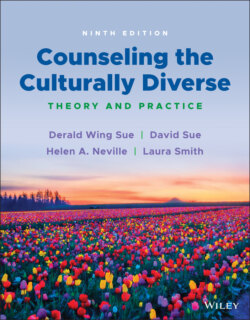Читать книгу Counseling the Culturally Diverse - Laura Smith L. - Страница 31
The Meaning of Guilt, Regret, and Remorse
ОглавлениеWhen discussing diversity issues, many White trainees admit to feeling guilty, although most tend to say that they “are made to feel guilty” by People of Color, especially when unjustly accused (Sue & Spanierman, 2020). This statement actually suggests a distancing strategy in localizing guilt as external to oneself rather than as rightfully residing and being felt internally. Guilt as an emotion occurs when we believe we have violated an internal moral code, and have compromised our own standards of conduct. The question becomes, why should White trainees feel guilty when topics of race, racism, or Whiteness are discussed? If indeed they are not racist, not responsible for the racial sins of the past, and not responsible for current injustices, then why should they feel guilt and how could they be made to feel guilty?
Some have coined the term “White guilt” to refer to the individual and collective feelings of culpability experienced by some White Americans for the racist treatment of People of Color, both historically and currently (Goodman, 2001; Spanierman, Todd, & Anderson, 2009; Tatum, 1992). In diversity discussions, many White trainees find guilt extremely uncomfortable, because it means that they have violated a moral standard and are disinclined to acknowledge their violation. What is that moral standard? Being a good, moral, and decent human being who does not discriminate, being a nonracist, living a life that speaks to equality and justice, and being a humane person who treats everyone with respect and dignity are the positive standards that are being breached. Compromising these moral standards and beliefs and acting in ways that violate them bring on bad feelings of guilt and remorse.
